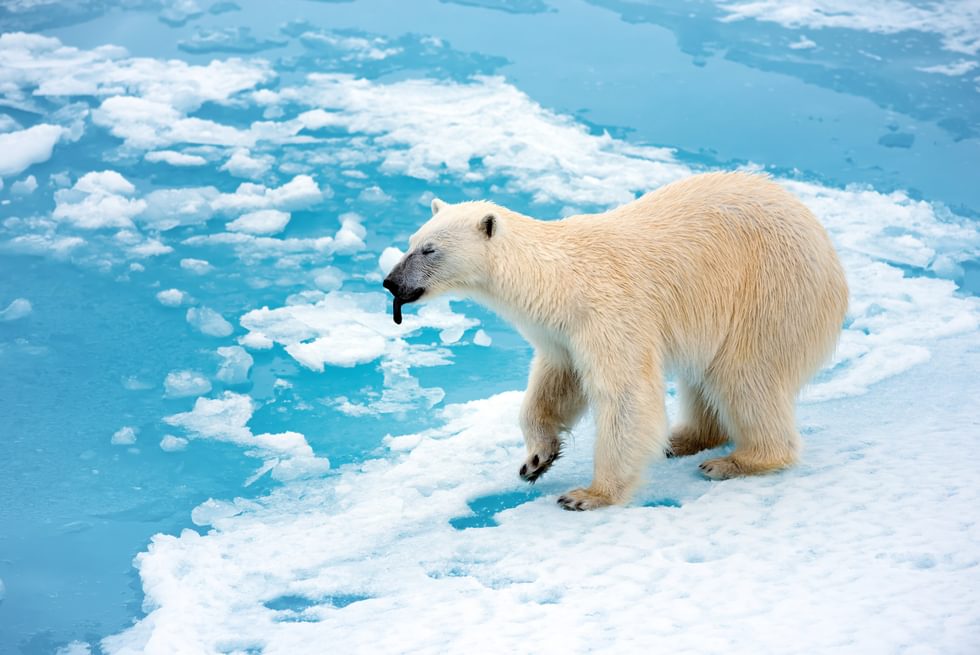Establishing Shared Knowledge about Globalization in Asia and the Arctic
From the Series: Arctic Abstractive Industry
From the Series: Arctic Abstractive Industry

Shared knowledge about globalization in the Arctic is driven, in part, by economic growth in Asia and by increasing interaction between Arctic communities and Asian academics, businesses, civil society organizations, and governments engaged in Arctic political, economic, and scientific development.1 Shared knowledge that is produced by Arctic communities and Asian actors is necessary for comprehensively sustainable development and for the realization of local benefits. We argue that there is a need to develop three kinds of shared knowledge between Arctic communities and Asian actors in the Arctic: knowledge in Arctic communities about globalization; knowledge about the Arctic among Asian actors; and knowledge cocreated by Arctic communities and Asian actors. In what follows, we discuss each of these areas, giving concrete examples from our research.
Globalization is accentuating the impact on Arctic communities of shifts in economic and political power, with the economic rise of China and other Asian countries and emerging markets. It has given rise to new interdependencies between societies, which were brought about by advances in technology, deregulation, and political reform. Arctic economies are affected by the price of oil, gas, and minerals as dictated by demand from Asian economies. New Arctic shipping lanes are motivated by shipping traffic between European and East Asian ports, as well as destination shipping bringing natural resources from the Scandinavian and Russian Arctic to East Asian markets. Asian climate science research in the Arctic responds to concerns over the effects of Arctic climate change for Asian weather patterns, with sea level rise threatening East Asian coastal megacities and economic centers like Shanghai. Economically and politically ascendant Asian states are demanding to be participants in regional governance around the world, including laying claim to observer status on the Arctic Council. Of course, these developments build on centuries of Arctic integration into international political and economic systems, which have had profound effects on local and indigenous communities.
Arctic local and indigenous communities require knowledge and skills to understand how globalization driven by economic growth in Asia impacts their locales. Listening to Québécois indigenous leaders describe their dealings with international mining companies at a conference at Umeå University in 2014, we were struck by the need for advanced skills in law and finance if such indigenous communities are to defend their interests. These skills may be necessary in order for Arctic communities to effectively participate and represent themselves in processes that involve research organizations and companies from China, India, Japan, Singapore, and South Korea, which are entering indigenous communities in large numbers. The alternative is a deepening of structural asymmetries between Asian megasocieties and Arctic communities.
Arctic citizens need a knowledge of international relations, international political economy, and international law, as well as language skills and other intangible skills, to operate in Asian political, economic, and cultural settings. This knowledge is qualitatively different from the locally focused knowledge and skills that have, until now, been promoted to aid in the delivery of health care, education, and other public services in the Arctic. For that reason, it is more important than ever for Northerners to acquire educational and professional experiences in global centers of politics, business, technology, and science—in Asia and elsewhere—before returning to serve Arctic communities. A particularly interesting initiative is Singapore’s scholarship program for Arctic indigenous youth who wish to pursue a Masters in public policy or law at the National University of Singapore. Such initiatives immerse Arctic indigenous students in the formal and informal networks that structure Asia-driven globalization. Meanwhile, Korea Maritime University is organizing the Korea Arctic Academy to bring Arctic researchers to Korea in order to explore public and private engagements with the North. Parallel initiatives must be developed at Arctic institutions.
We ourselves are engaged in two initiatives that contribute to shared Arctic-Asian knowledge. We organize the Circumpolar Model Arctic Council exercises, and we are developing a massive open online course (MOOC) on the Arctic under the auspices of the University of the Arctic. These two activities exemplify how knowledge can be disseminated and acquired by interested actors, using technology and unconventional teaching methods to ensure Arctic and global outreach. We aim to provide decision-makers in Asia who are involved in the Arctic with a rapid build-up of knowledge and understanding of Arctic societies, cultures, and environments. This knowledge is a necessary, but not sufficient, condition for acting in a comprehensively sustainable manner in the Arctic. Building up Asia-situated Arctic knowledge and understanding more broadly will require investments in education for youth and students, as well as executive and continuing education for professionals.
A particular challenge for building knowledge among Asian actors is that the Arctic is often a peripheral concern, competing with other pressing topics. Arctic human and natural sciences research and teaching capacity at Asian universities is often combined with Antarctic studies under a “polar” heading. This arrangement could actually strengthen interest in the Arctic, since Asian countries are generally much more interested in the Antarctic. Our own experience in large Asian universities is that the Arctic struggles to gain attention and resources.
Shared Arctic-Asian knowledge can help to ensure comprehensively sustainable development and local benefits for the Arctic, and thus it is important that Arctic communities and Asian actors cocreate knowledge through common learning and research processes that bring parties together through seminars, roundtables, and the like. Such gatherings should embrace different knowledge systems: traditional, local, and standard scientific. By doing so, they can ensure the participation and self-representation of Arctic local and indigenous communities, bringing together the resources of Arctic communities and Asian countries and institutions.
1. We refer, in particular, to the Asian Arctic Council observer states: China, India, Japan, Singapore, and South Korea.